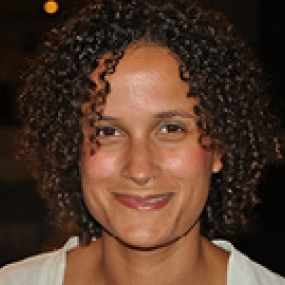The first ACSA reaccreditation, Homerton Hospital Department of Anaesthesia

Consultant Anaesthetist, ACSA lead
As a relatively new consultant and recently back from maternity leave I was looking for a role I could really get my teeth into. My boss, and clinical lead of our anaesthetic department suggested that I become the Anaesthesia Clinical Services Accreditation (ACSA) lead. I was assured that we would work through the ACSA process together and that it would provide me with an insight into how the department functioned – welcome knowledge after being away.
The Department of Anaesthesia at Homerton University Hospital was the first in the UK to be accredited under the Royal College of Anaesthetists (RCoA) Anaesthesia Clinical Services Accreditation Scheme in August 2014. Our clinical lead, Dr Sade Okutubo, initiated interest and led our anaesthetic department through the ACSA scheme to success. A tough act to follow, but I was ready for a challenge.
Before fully committing to the task, my first port of call was the RCoA website, which explains in detail the ACSA scheme. It is a voluntary, peer reviewed anaesthetic quality improvement scheme, which is gaining momentum throughout the UK. There are currently 145 standards that the scheme is centred around. These standards are based on recommendations from the College’s Guidelines for the Provision of Anaesthetic Services (GPAS) document, which is produced via a National Institute for Health and Care Excellence (NICE) accredited process. An anaesthetic department that can demonstrate 100% compliance with all the relevant standards will achieve accreditation. Sounds doable until I looked closer at the standards, many of which have multiple parts. Our existing evidence folder from the 2014 accreditation success was vast and needed revising with a fine-tooth comb. This was more work than I had bargained for and from August 2017 ACSA was all consuming.
The Department of Anaesthesia at Homerton University Hospital was the first in the UK to be accredited under the Royal College of Anaesthetists (RCoA) Anaesthesia Clinical Services Accreditation Scheme
What kept me motivated over the months to come? The College has devised a unique scheme which when embraced, provides an anaesthetic department with support and direction, through the standards, towards providing a safe, high quality, patient centric service. ACSA is recognised by the Care Quality Commission and provides information on the quality of the anaesthetic service within an NHS trust hospital in areas such as care pathways, equipment, facilities and staffing, patient experience and clinical governance. An accredited department would ultimately be more attractive to trainees, potential employees and patients. Let us not forget the plaque that is displayed as a marker of one’s success, a clear signpost of high-quality service provision in anaesthesia.
At regular intervals, we reviewed and added evidence to support the standards, which included audits, anaesthetic charts, trust policies and our local handbook. Local guidelines and policies were updated and the most commonly used documents could now be found on our redesigned intranet page. There were regular departmental teaching sessions to disseminate information about the ACSA scheme and the standards. Our 2018 standards evidence folder, accumulated reams of documents as the year passed.
Prior to the ACSA Review visit, evidence for certain standards were exchanged. July 2018 was upon us and a few final documents found their way into the folder. The visit passed fairly smoothly and the feedback sounded positive. After the visit there were a few more standards that needed further clarification. In October 2018 we were ecstatic to receive the news that we had successfully gained ACSA reaccreditation from the College. All this would not have been possible without the united, dynamic and supportive anaesthetic department that I am proud to work within, and who embraced the ACSA scheme with gusto.
Dr Sara Bowman
